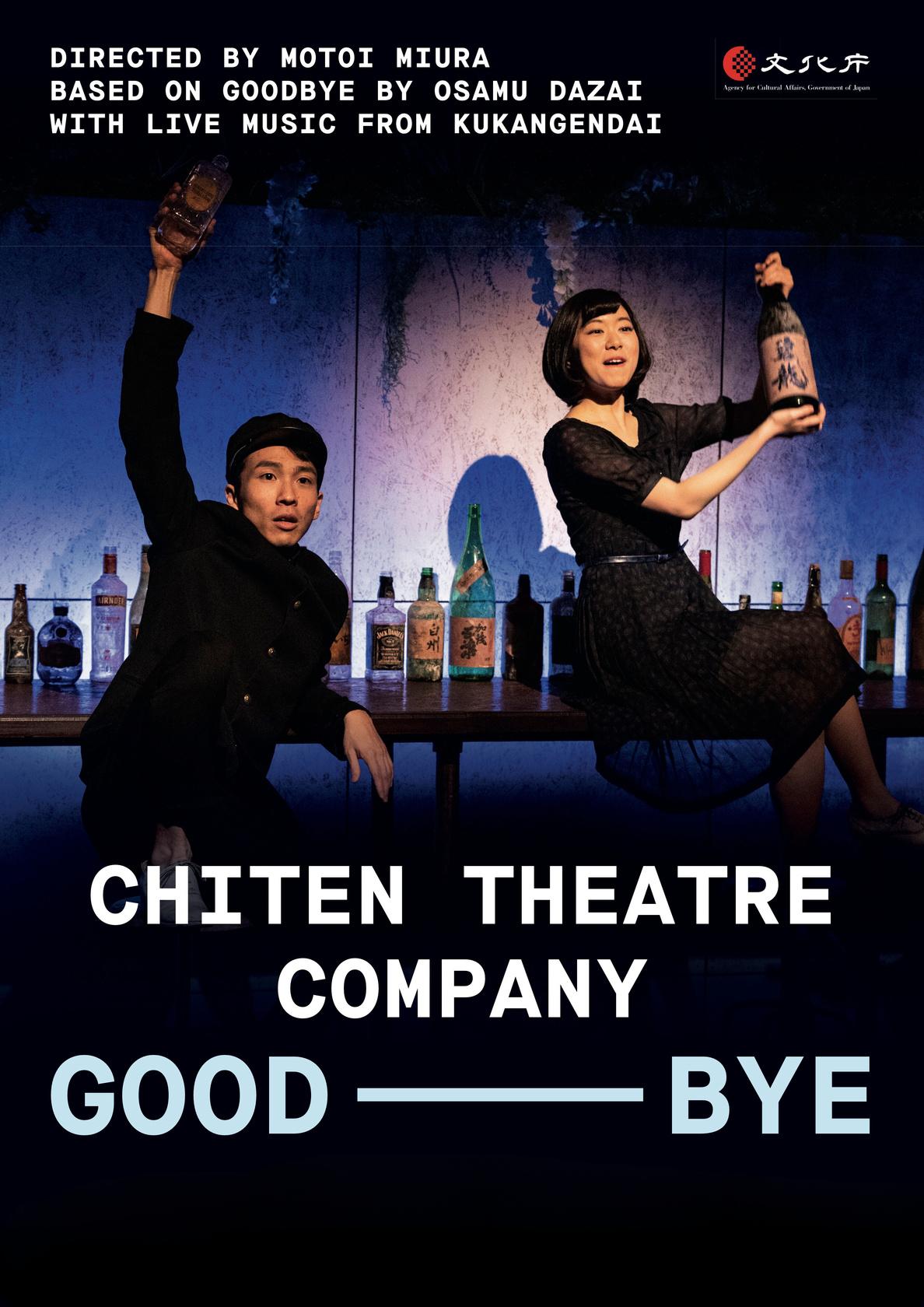

CHITEN THEATRE COMPANY:
GOOD-BYE
Directed by Motoi Miura
Based on Goodbye by Osamu Dazai
05 - 09 Mar, 2024
Running Time:
Approximately 85 mins with no interval
Age Guidance: 14+
Presented in Japanese with English surtitles.
Content Warnings:
References to Alcohol Abuse
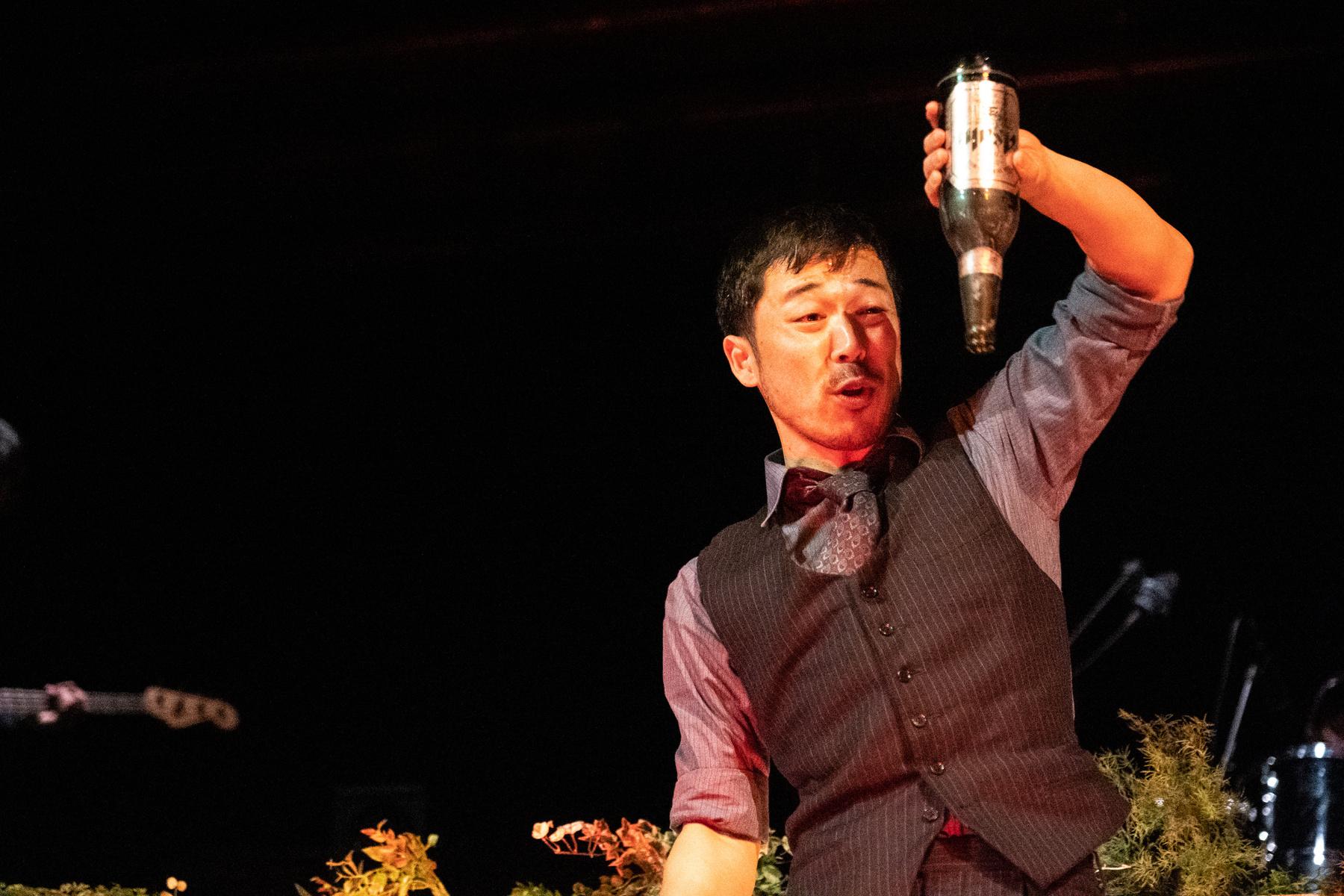
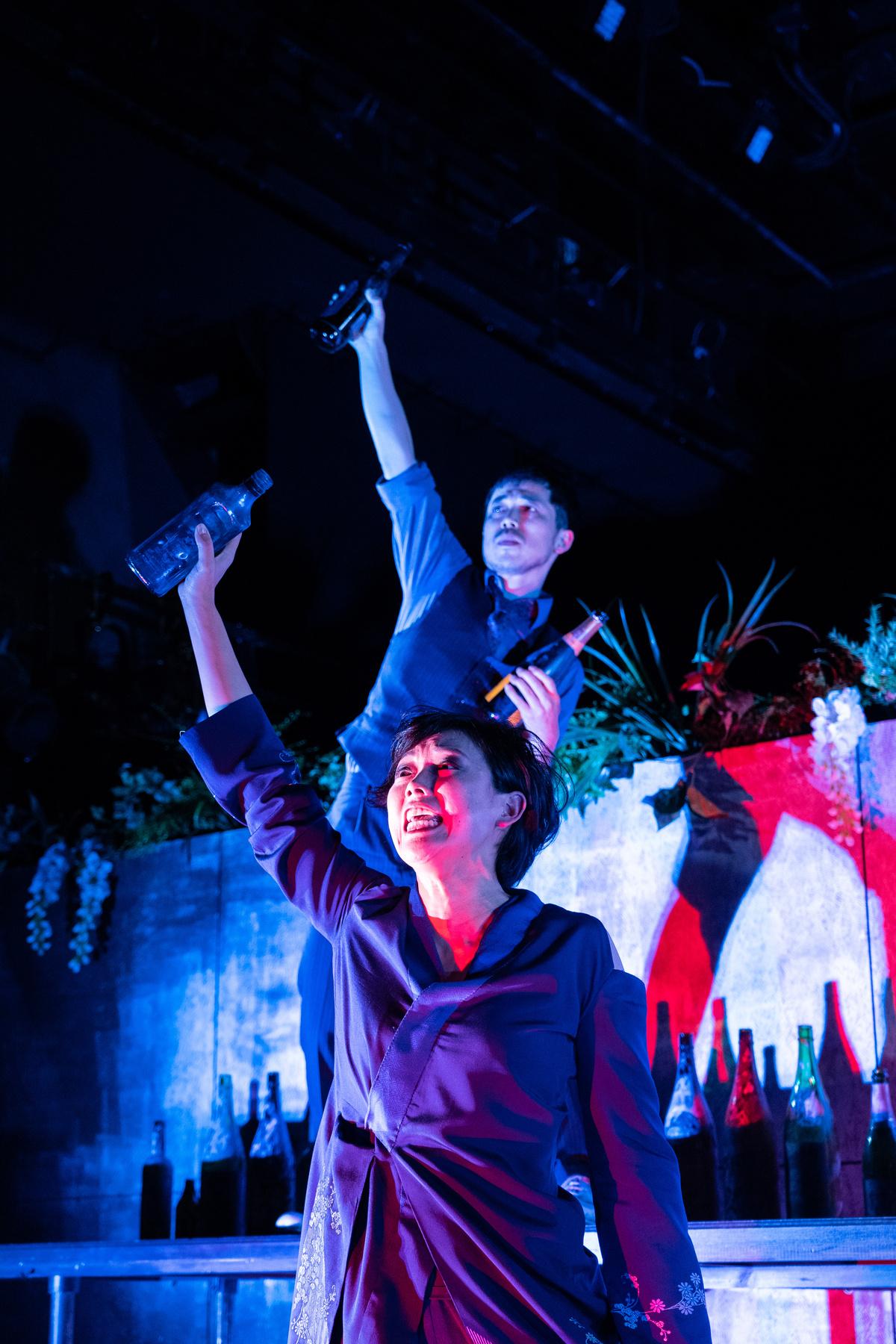
WORLD WAR II IS OVER AND JAPAN HAS LOST.
One of Japan’s foremost experimental theatre companies presents GOOD-BYE, based on the 1949 work of popular Japanese novelist, Osamu Dazai, (No Longer Human), and a collage of his later works. Dazai committed suicide before finishing GOOD-BYE.
As a man plans his death, he meets with friends and past lovers to say goodbye with a beautiful and exhilarating farewell. In a feverish story filled with lightness, brightness and peppered with macabre humour, he relives his life as a student, after university and during and after the war.
Set in a bar, accompanied live by the Japanese rock band Kukangendai, where everyone gets increasingly drunk, the piece addresses the struggle to identify what it was, and now is, to be Japanese.
CAST AND CREATIVE TEAM
Director
Motoi Miura
Based on a collage of novels by Osamu Dazai
Music
Kukangendai
Cast
Satoko Abe, Dai Ishida, Masaya Kishimoto, Shie Kubota, Asuka Kurosawa, Yohei Kobayashi, Kazuki Masuda
Set Designer
Itaru Sugiyama
Sound Designer
Bunsho Nishikawa
Lighting Designer
Yasuhiro Fujiwara
Costume Designer
Colette Huchard
Stage Manager
Nobuaki Oshika
Producer
Yuna Tajima
GOOD-BYE is supported by The Agency for Cultural Affairs, Government of Japan through the Japan Arts Council
BECOME A FRIEND
The Coronet Theatre’s Membership scheme is your passport to our extraordinary artistic mission. As a member, you’ll unlock exclusive benefits, from priority booking to discounts at our iconic bar, invitations to exclusive events, merchandise, and access to the latest news about our cutting-edge productions and events
For just £10 a month you can enjoy these amazing benefits:
Priority Booking - Book ahead of the general public and secure great seats
10% Bar Discount - Get a 10% discount on all drinks in our atmospheric candlelit stalls bar
Season Launch Events - Receive an invitation to at least one exclusive season launch event a year
Tote Bag - Receive a free Coronet Theatre Tote Bag worth £15 Supporters' Newsletter - Be the first to hear news about our new productions, meet the team and get a behind the scenes insight into how our shows are brought to life with an exclusive quarterly newsletter
By becoming a member, you ’ re not just gaining access to world-class international arts – you ’ re also joining a community that values the transformative power of culture.
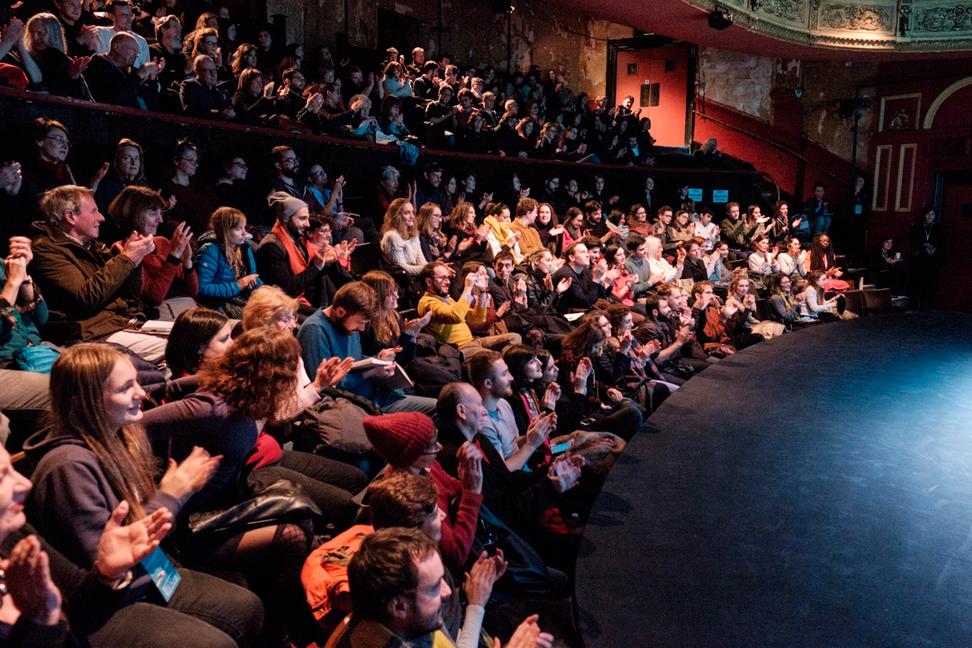
CHITEN THEATRE COMPANY
Chiten, meaning “locus” or “point”, is a theatre company led by director Motoi Miura. It specializes in performances created out of collages using fragments of existing texts. It employs an original linguistic style, deliberately delaying the cadence and rhythm of language to expose the raw sound of the words liberated from their meanings. This technique has frequently been recognized for its musical qualities. Rather than maintaining a single systematic methodology, Chiten explores a wide variety of approaches for the texts it adapts Its major work includes a series of stagings of Chekhov plays, Brecht’s Fatzer, and Jelinek’s Kein Licht.
Originally based in Tokyo, Chiten moved to Kyoto in 2005. In 2013 it renovated a derelict former music venue to open an atelier space: UNDER-THROW. The name is derived from a Japanese-English word literally meaning “under pitching” and which usually refers to a submarine pitch in baseball. At the space Chiten performs a repertoire of previous productions and new works. In 2011, it performed The Cherry Orchard and Uncle Vanya at the Meyerhold Centre in Moscow. It was invited to perform Coriolanus at Shakespeare’s Globe theatre in London as part of the World Shakespeare Festival in 2012. Alongside its acclaimed overseas tours, it regularly receives commissions for coproductions with public theatres and festivals in Japan, including the Kanagawa Arts Theatre (KAAT) in Yokohama, Kyoto Experiment, and Festival/Tokyo.
The company currently has six permanent performers. All the members of the company appear in every production, whether that is acting over thirty roles in Shakespeare plays or performing texts that are fundamentally non-dramatic, such as the Constitution of Japan. The company aspires to arrive at new frontiers in technique and directing. Departing fully from realism, Chiten rehearsals are improvisational in nature in order create complex and difficult theatre through its unique critical interpretations.
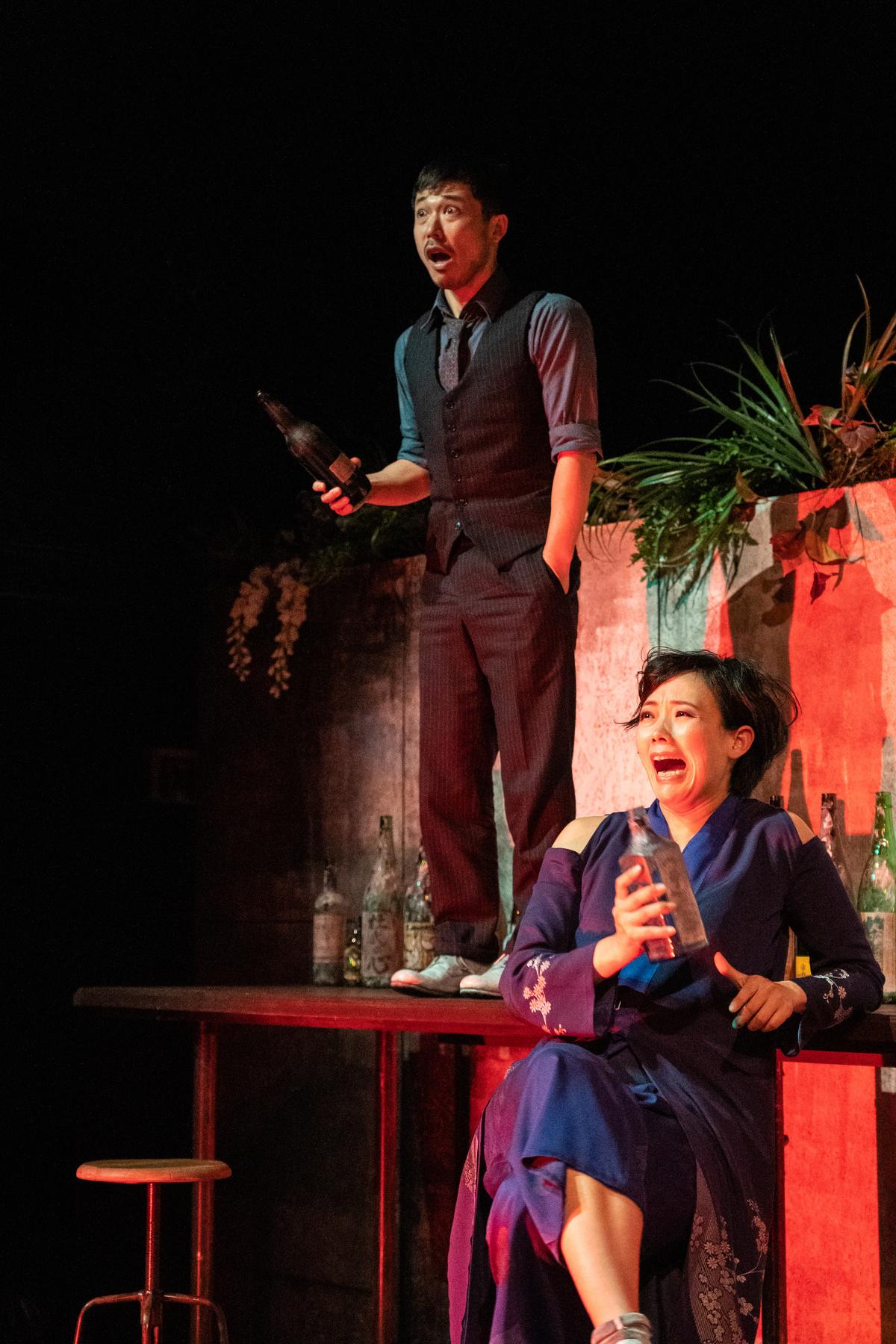
A message from Chiten Theatre’s Director Motoi Miura:
I never imagined that so many wars would break out across the world during my lifetime. However, every day, my phone matter-of-factly shows those wars to me. When I see them, I can feel depressed. Or, I can feel angry. I can also look away from them, of course. Because I’m free.
If you look up Osamu Dazai online, here’s what you’ll find:
“Shūji Tsushima (Tsushima Shūji, 19 June 1909 ‒ 13 June 1948), known by his pen name Osamu Dazai(Dazai Osamu), was a Japanese novelist and author. A number of his most popular works, such as The Setting Sun (Shayō) and No Longer Human (Ningen Shikkaku), are considered modern-day classics.”
Dazai wrote a large number of stories during World War II. He committed suicide less than three years after the war ended, but during that short period he published one masterpiece after another, including both The Setting Sun and No Longer Human. He avoided conscription during the war due to illness. The character Mita, who goes off to war in Dazai’s stories, was an actual friend of Dazai.
Dazai anguished over his friends going off to die during the war, while he alone continued to live. If I had lived in that era, I imagine I would have gone off to war as well. Because it was natural to die for your country.
Japan lost World War II. Then, under America’s protective custody, Japan became a country that pursues peace. Since then, no battles have been fought in Japan to this day Since then, there has been no military conscription in Japan. And this has become natural for many Japanese people.
I look at my phone again today. These screens lead us to pretend not to see what’s right before our eyes, to act as if we know everything. I become more sensitive to spotting lies Maybe I’m not free
Could Dazai have had a smart phone?
He hid it in his pocket. He wanted to throw it away, but, like us, he lacked the courage to follow through. He couldn’t ignore the world around him, and he was scared of society. On that point at least, he was a normal citizen. He cried out for freedom, like normal.
He dreamed of revolution, like normal. He loved humanity, like normal. And he opposed war, like normal.
He died after the war ended, as if it were only natural. He became a casualty of war, in his own way. By depicting the life of one Japanese author, in this play we shout a message to the near future:
“It’s past time to say goodbye to war ”
Well, everyone, please turn off your phones. It’s time to start the show.
Motoi Miura, Director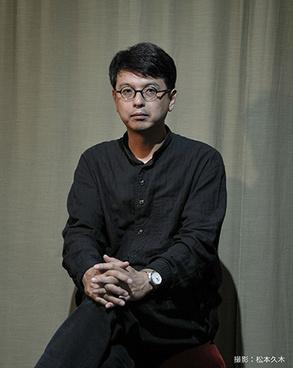
私の⽣きている間に、世界中でこんなにもたくさんの戦争が始 まるなんて……、私は想像していませんでした。しかし、私の スマートフォンは、毎⽇、その有様を簡単に⾒せてきます。そ れを⾒て、私は悲しむことができます。怒ることもできます。 もちろん、⽬を背けることもできます。私は⾃由なのですか ら。
Osamu Dazai を検索してみてください。
“Shūji Tsushima (Tsushima Shūji, 19 June 1909 ‒ 13 June 1948), known by his pen name Osamu Dazai(Dazai Osamu), was a Japanese novelist and author. A number of his most popular works, such as The Setting Sun (Shayō) and No Longer Human (Ningen Shikkaku), are considered modern-day classics.”
彼は、第⼆次世界⼤戦中に数多くの⼩説を書きました。終戦す ると3年もしないうちに⾃殺してしまいますが、その短い間 に、The Setting Sun (Shayō) や、 No Longer Human (Ningen Shikkaku) など、傑作を⽴て続けに発表します。彼は病気だっ たために徴兵を免れました。⼩説に登場する軍隊に⾏った三⽥ 君とは、彼の実在の友⼈です。Dazai は、友⼈たちがみな戦争 で死んでゆき、⾃分⼀⼈だけ⽣き延びていることに深く悩みま す。私もあの時代に⽣きていたら、やはり軍隊に⾏ったと思い ます。国のために死ぬことは当たり前のことでしたから。
⽇本は、第⼆次世界⼤戦に負けました。そしてアメリカの保護 の下に平和を追及する国になりました。あれから今⽇まで、⽇ 本は戦場にはなっていません。あれから⽇本では、徴兵される こともありません。多くの⽇本⼈にとってそれが当たり前にな りました。
今⽇も、私はスマートフォンを覗きます。私たちが、⾒て⾒ぬ ふりをするように、私たちが、何もかも知っているふりをする ようにもこの画⾯は仕向けます。何が嘘なのか、ということに 私は敏感になります。私は不⾃由なのかもしれません。
さて、Dazai はスマートフォンを持っていたのでしょうか? 彼は、それをポケットに隠していました。本当は捨てたかった ようですが、やはり私たちと同じように捨てる勇気はありませ んでした。世間を無視できないし、社会を怖がってもいまし た。その点では、彼は普通の市⺠でした。普通に⾃由を叫んで いました。普通に⾰命を夢⾒ました。普通に⼈間を愛しまし た。そして、普通に戦争に反対しました。
彼は戦争が終わると当然のように死んでゆきました。それは彼 なりの戦死でした。この演劇は、ある⽇本の作家の⽣き⽅を通 して、私たちの近い未来に叫びたいと思います。
もう戦争には、グッド・バイなのだ、と。
さぁ、皆さん、スマートフォンの電源をお切りください。
開幕です。
演出 三浦基

MOTOI MIURA
Born in 1973, Miura graduated from the Toho Gakuen College of Drama and Music. In 1996 he joined Seinendan Theater Company, where he worked as an assistant director to Oriza Hirata and as full-time staff at Komaba Agora Theatre. From 1999 he studied in Paris for two years on a government scholarship, learning directing, arts management and artistic directorship under Jacques Blanc He returned to Japan in 2001 and started his work with his company CHITEN, directing Japan premières of plays by Jon Fosse and David Harrower. In 2005 he left Seinendan and moved to Kyoto, and won the Outstanding Performance Award at the Toga Director Contest. He has been re-creating the four masterpieces of Chekhov since 2007 and in the same year he received the Agency of Cultural Affairs New Director Award for his production of “The Cherry Orchard”. In 2010 he received the Kyoto Prefecture Culture Award and his first book on production theory “Is just being interesting OK?” was published. He has won many other awards. Among his productions are Philip Glassʼ s opera “In the Penal Colony”(2008), Elfriede Jelinek’s “Kein Licht.”(2012), and Beltort Brecht’s “Fatzer”(2013).
OSAMU DAZAI
Novelist
Osamu Dazai, born Shūji Tsushima, was one of 20th-century Japan’s foremost novelists. A number of his most popular works, such as The Setting Sun and No Longer Human, are considered modern classics. Dazai’s stories have intrigued the minds of many readers with their semiautobiographical style and intimate insight into his personal life His novels explore topics such as human nature, mental illness, social relationships, and post-war Japan.



LONDON'S FIRST SHOWCASE OF TAIWANESE CULTURE FEATURING DANCE, MUSIC, VISUAL ART, PHYSICAL THEATRE, VR AND IMMERSIVE EXPERIENCES



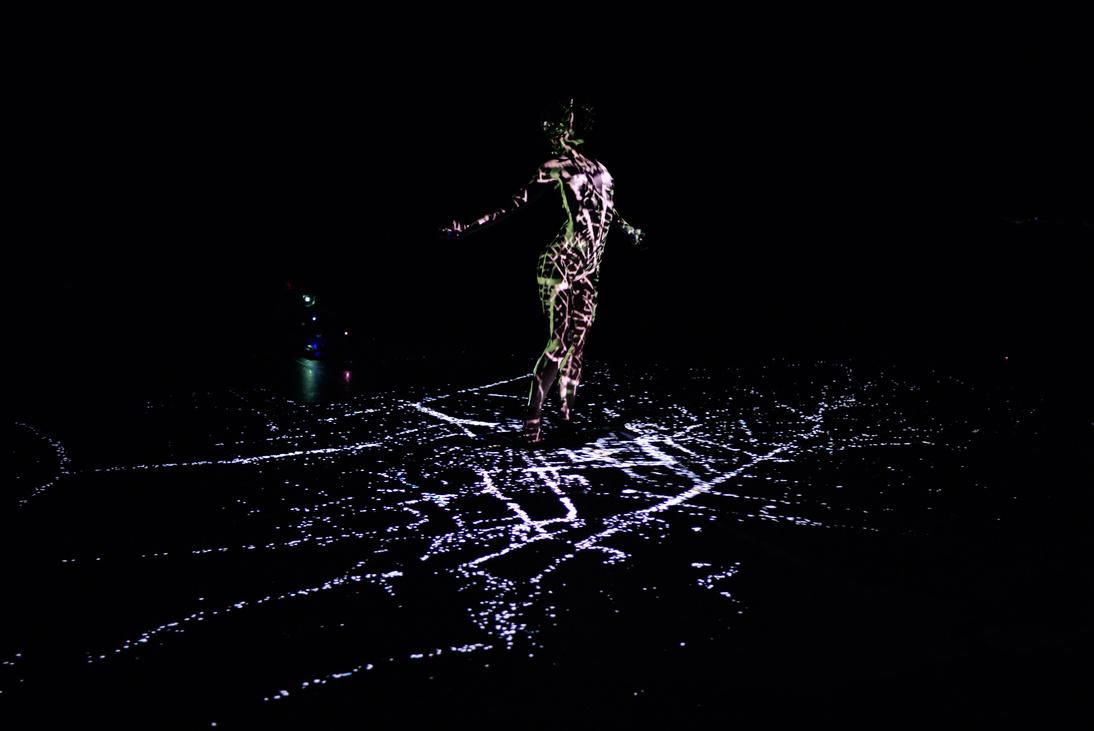
ANARCHY DANCE COMPANY & HUNG DANCE
Reflecting the astonishing cultural journey of this country, two extraordinary pieces from leading collectives Anarchy Dance Company and Hung Dance introduce Taiwan’s booming contemporary dance scene.
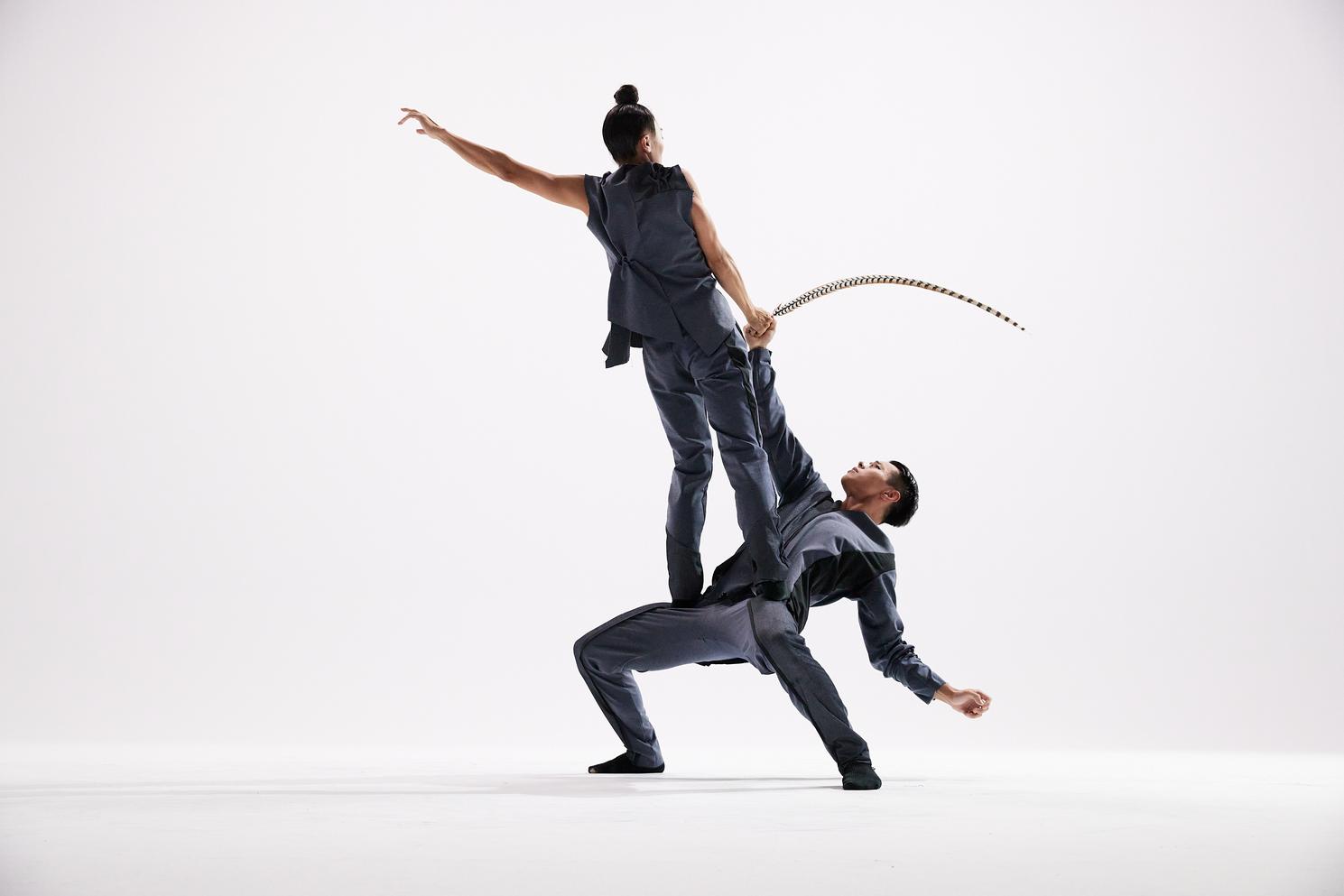
YUJUN WANG
Acclaimed multidisciplinary music artist Yujun Wang will launch her new album 明 Dawn to Dawn in two intimate concerts. Her music revolutionises the relationship between music, theatre, dance, and performing arts, entrancing audiences creatively and intellectually.

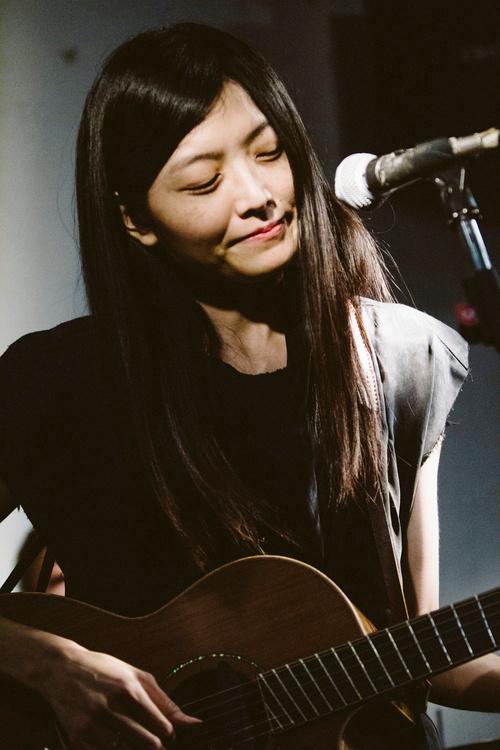
CHOU KUAN-JOU’S TOMATO
Following a hugely successful run at the Edinburgh Fringe Festival in 2022, gifted dancerchoreographer Chou Kuan-Jou presents Tomato, a playful, provocative and experimental exploration of gender issues.
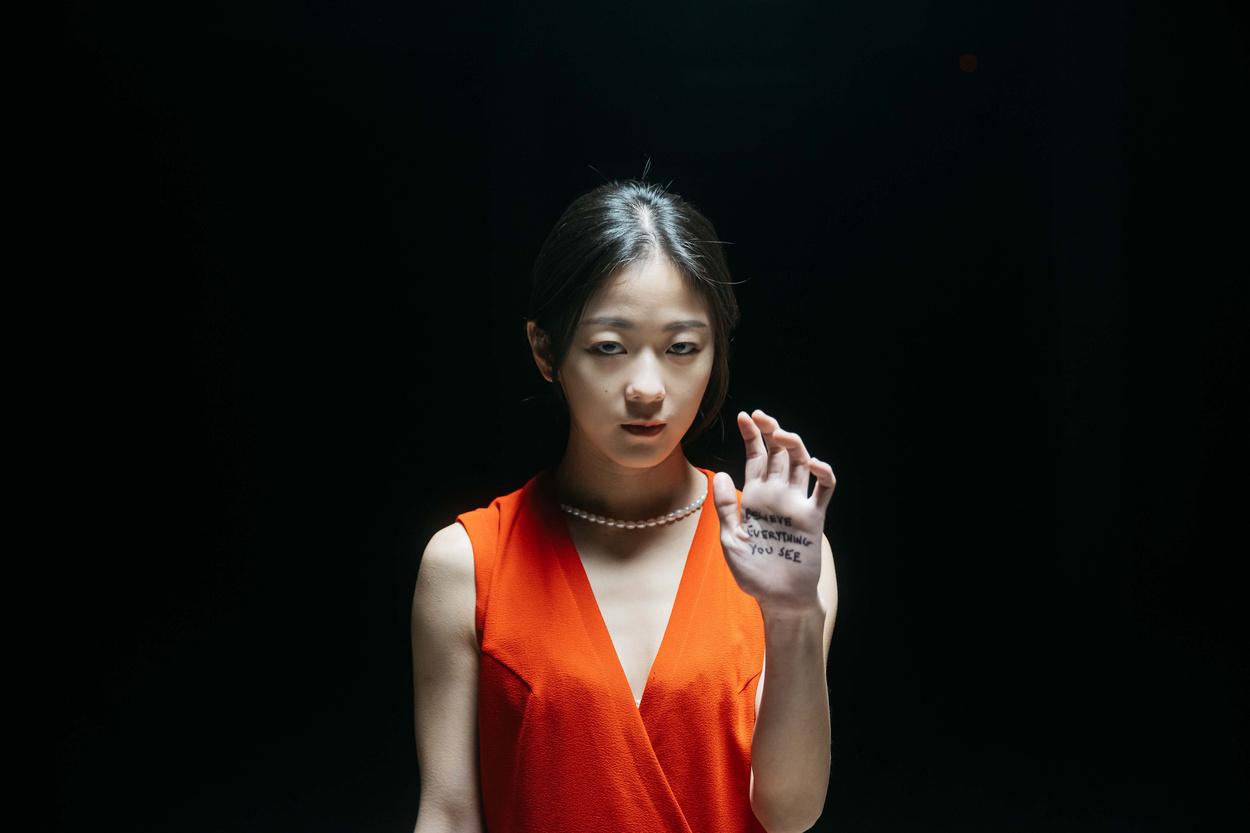
RIVERBED THEATRE
Riverbed Theatre present their immersive VR experience All That Remains throughout the festival, alongside the world premiere of taking it down and putting it up, a poetic meditation on the work of Marcel Duchamp.
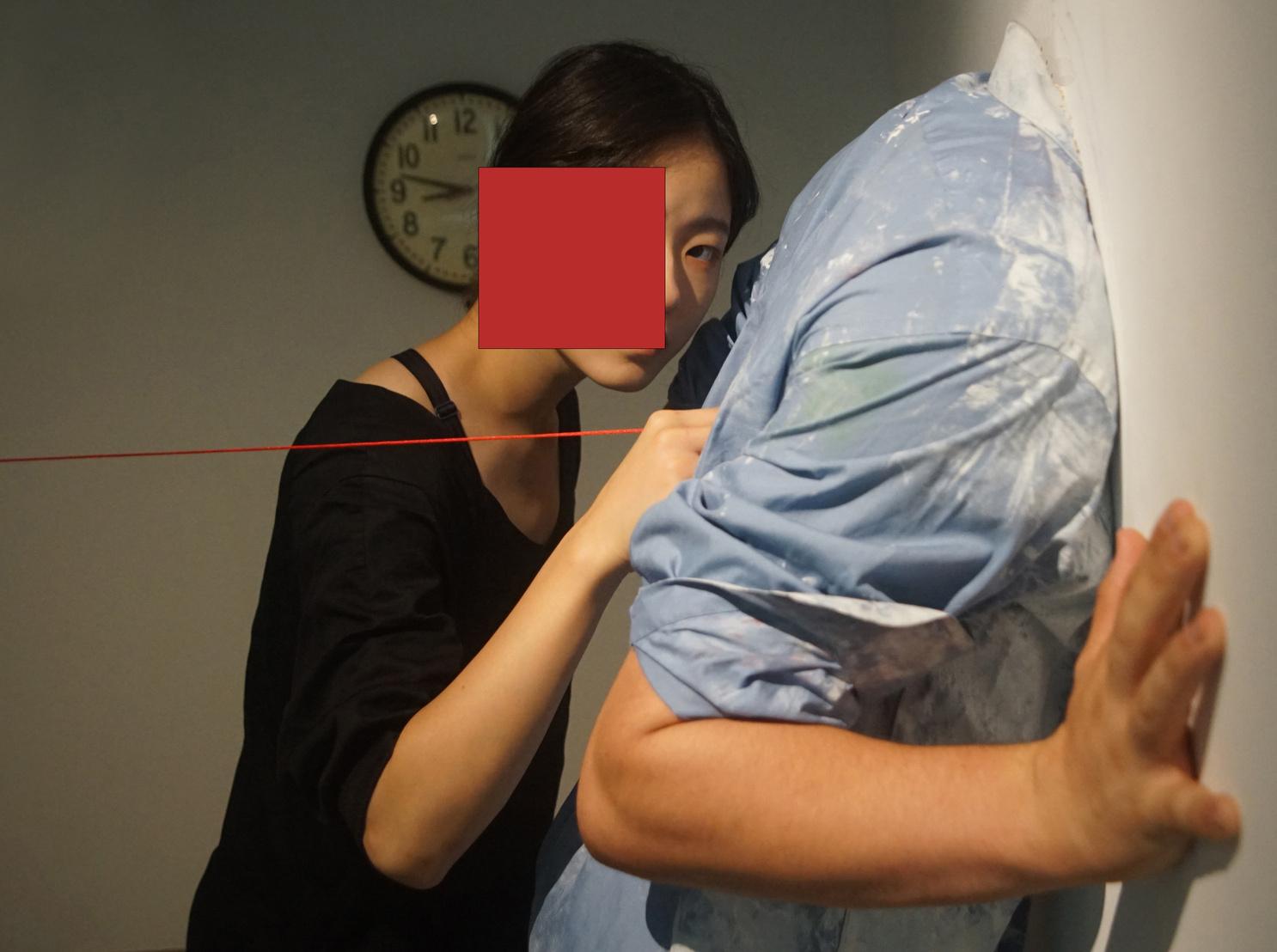

CHENG-TSUNG FENG
A major site-specific bamboo installation and exhibition by stellar Taiwanese artist Cheng-Tsung Feng, encasing the Coronet Theatre’s historical façade and taking over the interior spaces with his dramatic and intricate structures.
The Taiwan Festival Season
Ticket from just £80.
Our season tickets include a ticket to each of the shows within the Taiwan Festival, as well as free access to ChengTsung Feng’s exhibition and Riverbed Theatre’s VR experience.
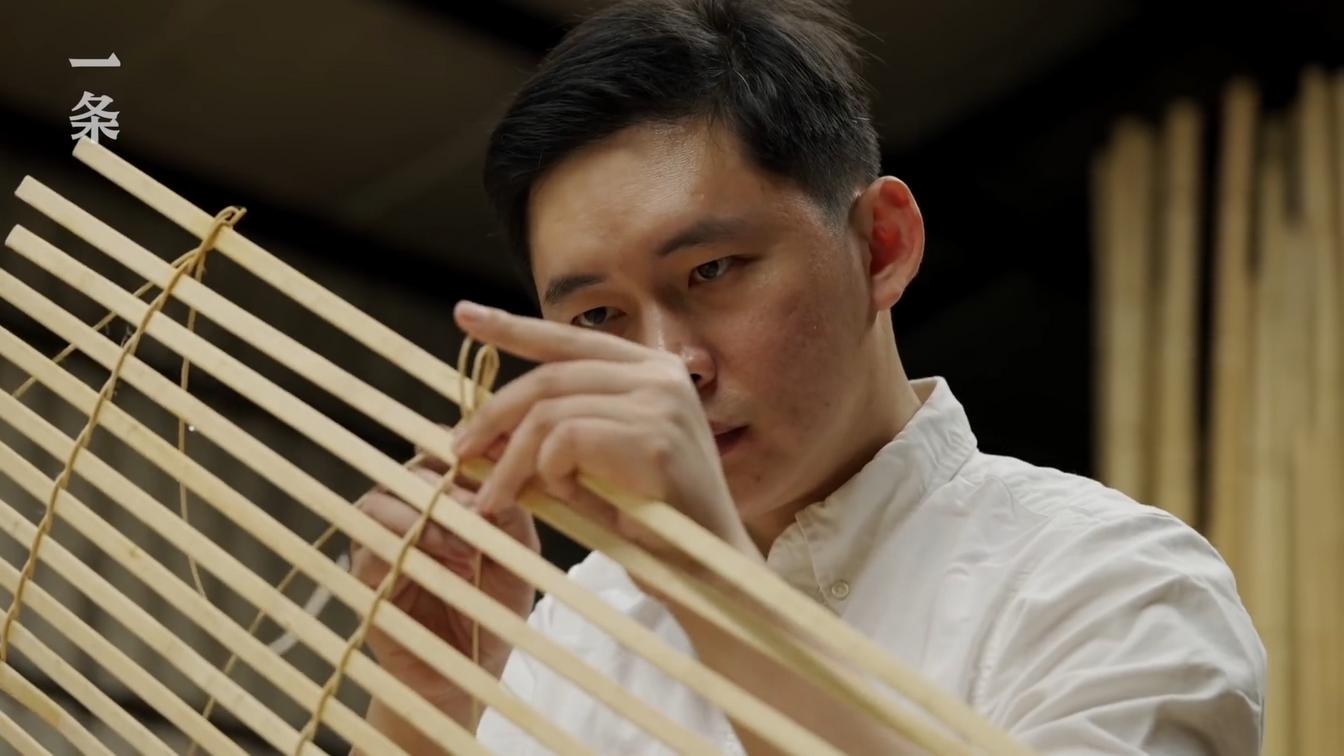
An introduction to GOOD-BYE written by
Kumi Tateoka, Professor of The University of Tokyo:Theatre as dialogue:
On the performance of Osamu Dazai's "Good Bye" by theatre Chiten
Osamu Dazai, one of the leading authors of Japanese dilettante literature during and after the war, is one of the top-rated writers regardless of generation He is an ambitious author who has tried his hand at various genres, using motifs from Greek mythology, Shakespeare and other classical literature. Still, he has also worked on several first-person novels.
Poetry is generally regarded as monologue and prose as dialogue, but there is a monologue prose genre in Japanese literature. It is the so-called 'I-novel'. In this genre, the author's own life experiences are used as material, and the author reveals their feelings and sentiments. However, it differs from European confessional literature. Confession is a dialogue with an invisible God, and there is a sense of crisis in which my insincere way of being is impeached. Japanese 'I-novels' tend to expose their own weaknesses, appeal that you (the reader) are just as weak as they are, seek sympathy and empathy, and try to create a co-conspirator and codependent relationship with the reader.
The concept of 'independence' has hardly taken root in Japan. In Japanese, the first person plural " wareware " is expressed as 'ware+ware (me + me)'. In other words, ' us ' is expressed as a state in which multiple doppelgangers share the same orientation as ' me ' . The second person singular is appropriated by words used as the first person, such as ' ware (me)' and 'jibun (self)'. So in Japanese, "I am you " and " you are also me " .
The public is expressed as multiple forms of the 'I'. This is why, in Japanese society, most people feel intensely dissatisfied with others not in tune with the masses. On the contrary, the desire to be approved of by others is also potentially hidden in first-person expressions. Thus, the grammatical term' first person ' has different nuances in English and Japanese.
Dazai, though using the first-person narrative form of "private fiction" and talking to the reader, attempted to bring dialogue into Japanese literature of the time, which assumed a homosocial relationship, "Japanese people in general should feel the same way " . He selfconsciously demeans himself as an over-pretentious, unfashionable or useless person. He refuses to be sympathetic to the reader, saying, "The readers who are part of "society's elite" would not understand why I do such things". By speaking negatively of the self, the author isolates the Japanese word 'I', which can quickly become pluralised, emphasising the protagonist's sense of pettiness and alienation, thereby highlighting that 'I' is singular. At the same time, the protagonist's humorous and ironic clownish narration opens the story to the carnival-like space described by Bakhtin. The protagonist's inability to adapt to modern society based on the law of the jungle highlights the inhuman behaviour of those who conversely highlights the inhumane behaviour of social elites who pandered to militarism during the war and to materialistic liberalism after the war.
The music played by the band Kukangendai in this play is not background music to supplement the characters' emotions. The music weaves its own life and is one of the most important characters. The characters played by the actors have various life circumstances. They are like friends while drinking and listening to the music in the bar. However, while swaying to the rhythm, their thoughts are different. They are disparate individuals with nothing in common when they open the door and step outside, just as their sadness in the bar is hidden deep within their bodies and cannot be read from their faces.
The rhythm, too, is borrowed from a band that happens to be there. Audiences will also expect something from the music and dialogue that represents an inexpressible emotion. Or they will be disappointed not to find it. It is selfish, but individuals who cannot create their rhythms have no choice but to follow the beat of others This resembles adapting one ' s values to a non-verbal, unstable common sense.
Even if the actors create a sense of unity with the same rhythm, it is not possible to identify individual thoughts with accidental music. The band also cuts off the sound, as if it tries to sidestep the characters' hope
So how can individuals live in a society where violence dominates, and common sense is more out of tune with the melody of humanity?
Theatre Chiten's drama creation is based on thorough dialogue. It is not a translation, explanation, or adaptation of the original but a dialogue. What the actors perform on stage is not a chronological story but a hybrid collage of sensory images created through contact between the author's words and the lives of the actors, costume designer, set designer, music designer, lighting designer, dramaturge, and theatre director. The core of Chiten's performance is how the words delivered to the audience through the voice, sound, and light brew further images in the audience's inner world. In his theatre theory, director Motoi Miura states that the play's dialogue does not occur between the actors on stage but that the inner world of the audience who hears the words combines them to create meaning. Herein, we have a new style of theatre.
Previously, it was like a school subject, as if the audience was being tested in the theatre, passively reading the given story. But from now on, the audience themselves, having heard the words of the stage, activate their inspiration to the maximum and act to ironically critique the author's and the actors' words or the common sense that is transparent in them. Viewing the play as a creation in which each audience member engages in a dialogue with the stage lines in their way. The theatre creation of the future will change every time it is seen, as the words that are impressive to the audience and their ideas about them will change depending on the day's conditions. This open-ended appreciation may be the same for literature. Theatregoing and reading are also acts of creation.
Kumi Tateoka (Professor, The University of Tokyo)ダイアロ グとしての演劇 太宰治『グッド・バイ』の公演に寄せて ⽇本の戦中・戦後のディレッタント⽂学を代表する太宰治は年齢層に 関わりなく絶⼤な⼈気を誇る作家のひとりである。ギリシャ神話やシェ イクスピアなどの古典⽂学のモチーフを使った作品もあり、多様なジャ ンルに挑戦した意欲的作家だが、 ⼈称⼩説をたくさん⼿掛けている。
般的に詩はモノローグで、散⽂はダイアローグとされるが、⽇本⽂学 にはモノローグの散⽂ジャンルがある。それは「私⼩説」である。この ジャンルでは、作者⾃⾝の⽣活体験を素材としながら、その中に作者の ⼼境や感懐を吐露していく。だが、ヨーロッパの告⽩⽂学とは異なる。
告⽩は⾒えない神との対話であり、そこには不誠実な私の在り⽅が弾劾 される危機感がある。⽇本の「私⼩説」は、⾃らの弱みをさらけ出し、 あなた(読者)だって同じ弱い⼈間だと訴え、同情と同調を求め、読者 との共犯関係・共依存関係を作りだそうとする傾向がある。 ⽇本語には「⾃⽴」という概念が薄い。1⼈称複数は「私+私」というよ うに、「私」と志向を共有するドッペルゲンガーが複数存在する状態と して表現される。⼆⼈称単数は「ワレ(I)」「ジブン(self)」という ⼈称 として使われる⾔葉が流⽤されてしまう。わたしは君であり、君もまた 私である。世間は「私」が増殖した複数形として表現される。だから同 調しない他者に対して強い不満を感じる。逆に⾔えば、⼀⼈称表現にも 他者に承認されたいという欲求が潜在的に隠されている。このように、 ⽂法⽤語の「 ⼈称」は、英語と⽇本語とでニュアンスが実は異なって いる。
太宰治は⼀⼈称語りの「私⼩説」の形式を⽤いながら、読者に語り掛け ることで、「総じて⽇本⼈ならば同じ気持ちになるはずだ」というホモ ソーシャルな関係性を想定する当時の⽇本⽂学にダイアローグを持ち込 もうとした。⾃分を気取りすぎて不格好な⼈間やダメ⼈間としてわざと ⾃⼰卑下し、「“優秀な”読者には私の気持ちがわかるまい」と読者の同調 を拒否する。⾃⼰を否定的に語ることで複数化しやすい⽇本語の「私」 をいったん孤⽴化させ、主⼈公である情けなさや疎外感を強調すること で、「私」が単数であることを際⽴たせ、同時に主⼈公のユーモラスで アイロニカルな道化的語りは物語をバフチンの⾔うカーニバル的な空間 へ開く。弱⾁強⻝の近代社会に適合できない主⼈公のあがきは、戦中は 軍国主義に、戦後は物質主義の⾃由主義に迎合する社会的エリ トたち の⾮⼈道的ふるまいを逆に際⽴たせる。
この芝居でバンド「Kukangendai」が奏でる⾳楽は登場⼈物たちの感 情を補⾜するBGMではない。その⾳楽⾃体が⾃らの命を紡ぐ、重要な 登場⼈物のひとりと⾔ってよいだろう。俳優たちが演じる登場⼈物た ちは様々な⼈⽣上の事情を抱えつつも酒場に集って⾳楽にのりつつ酒 を飲む間はまるで気⼼知れた仲間のようだ。けれども、リズムにノッ て体を揺らしつつ、考えていることは実はバラバラだし、ドアを開け て外に出れば、何の共通点もないバラバラの個⼈である。パブに集う ⼈々の個別の悲しみは体の奥底に隠されていて、その顔からは読み取 ることが出来ないように、そのリズムも、偶然そこに居合わせたバン ドからの借り物なのだ。⾳楽を聴くとき、芝居のセリフを聞くとき、 観客も⾳楽やセリフが⾃分の思いを代弁してくれることを期待したり 失望したりする。なんとも⾝勝⼿だけれど、⾃らリズムを作り出せな い個⼈は他者のビートに合わせるしかない。それは明⽂化されない流 動的なコモンセンスに⾃分の価値観を合わせていくことに似ている。
俳優たちが同じリズムで 体感を⽣み出したところで、偶然の⾳楽に 個々の思いを同 化させることはできない。バンドもまた、個々⼈の 思いを引き受けることを拒否するかのように、⾳を断ち切って、登場 ⼈物たちに肩透かしを⻝わせる。では、暴⼒が席巻し、コモンセンス の⽅が⼈間性の旋律から外れている社会で個⼈はどう⽣きたらよいの だろうか。
劇団地点のドラマ創作は徹底した対話に基づいている。それは原作の 翻訳でも説明でも翻案でもなく、対話である。舞台で俳優たちが演じ ているのは時系列に沿ったストーリーではなく、原作のことばと俳 優、⾐装、舞台装置、⾳楽、照明、演出、ドラマトゥルグの⼈⽣とが 接触することで⽣み出される感覚的なイメージのハイブリッドなコラ ージュである。その声や光のフィルターを通して観客に届けられる⾔ 葉が、観客の内⾯でさらにどのようなイメ ジを醸造するのか、が地 点の芝居の核である。演出の三浦基は彼の演劇論の中で芝居のダイア ローグは舞台上の俳優間で⾏われているのではない、聞き取った観客 が⾔葉を組み合わせて意味を⽣み出すのだと述べる。ここに新しい観 劇のスタイルがある。
俳優たちが同じリズムで⼀体感を⽣み出したところで、偶然の⾳楽に 個々の思いを同 化させることはできない。バンドもまた、個々⼈の 思いを引き受けることを拒否するかのように、⾳を断ち切って、登場 ⼈物たちに肩透かしを⻝わせる。では、暴⼒が席巻し、コモンセンス の⽅が⼈間性の旋律から外れている社会で個⼈はどう⽣きたらよいの だろうか。
劇団地点のドラマ創作は徹底した対話に基づいている。それは原作の 翻訳でも説明でも翻案でもなく、対話である。舞台で俳優たちが演じ ているのは時系列に沿ったスト リ ではなく、原作のことばと俳 優、⾐装、舞台装置、⾳楽、照明、演出、ドラマトゥルグの⼈⽣とが 接触することで⽣み出される感覚的なイメージのハイブリッドなコラ ージュである。その声や光のフィルターを通して観客に届けられる⾔ 葉が、観客の内⾯でさらにどのようなイメージを醸造するのか、が地 点の芝居の核である。演出の三浦基は彼の演劇論の中で芝居のダイア ロ グは舞台上の俳優間で⾏われているのではない、聞き取った観客 が⾔葉を組み合わせて意味を⽣み出すのだと述べる。ここに新しい観 劇のスタイルがある。
これまでの劇場は、学校の教科のように、観客が受動的に与えられた ストーリーを読み取るというテストを受けていたようなものだ。だ が、これからは、舞台の⾔葉を聞き取った観客たち⾃⾝がインスピレ ーションを最⼤限に活性化し、作家の、俳優たちの⾔葉を、そこに透 けて⾒えるコモンセンスをアイロニカルに批評するアクションを起こ す。観客それぞれが思い思いに舞台のセリフとのダイアローグを⾏う 創造としての観劇である。同じ芝居でもその⽇のコンディションで観 客が受け取る⾔葉、考える⾔葉が変わっていく。⾒るたびに新しい芝 居。それがこれからの演劇創造だろう。このようなオ プンエンディ ングの鑑賞は原作の⽂学作品でも実は同じなのかもしれない。観劇も 読書もまた創造⾏為なのである。
楯岡求美(東京⼤学教授)
THE CORONET THEATRE
“For me, the artist is at the heart of the programme, and I work closely with the makers of the pieces I bring to London, sometimes watching and encouraging them for years. In this increasingly fractious world, I feel strongly that one of the greatest uniting forces is the international language of and desire of all of us to engage with art, whether as a maker or spectator.
My goal is to fill the theatre spaces – the Main House, Print Room Studio, and bar – with diverse and wonderful arts from across the world, celebrating all its many forms and the audiences who enjoy them”
Anda Winters Artistic Director & CEOThe Coronet Theatre is a risk-taking, international arts venue in a restored and re-imagined Grade II listed building in Notting Hill. Both its programme and the building’s restoration are curated by Artistic Director, Anda Winters.
Our year-round multi-disciplinary programme of world-class drama, dance, music, poetry and visual arts in our main auditorium and studio space welcomes our own productions as well as visiting artists, including many UK and World Premieres.
We offer memorable and often unexpected experiences to audiences, while supporting established artists and nurturing new talent Our mission is to entertain, educate and excite UK audiences with the art and cultures beyond our borders.
THE CORONET THEATRE TEAM
ArtisticDirector&CEO
AndaWinters
GeneralManager
AndyMcDonald
SeniorProducer
HettyShand
FinanceManager
AndrewMichel
Company&ProductionCoordinator
EmmaSmith
Producer
DaphneSeale
AssistantProducer/PAtoArtistic Director
LolaGabellini
AssociateProducer
CathyLewis
DigitalMarketingOfficer
RiccardoTitoPescini
MarketingManager(Freelance)
ElliotHall
PressRepresentative
SharonKean
PoetryCoordinator
MarionManning
AudienceExperienceManager
GiudiDiGesaro
BoxOfficeAssistant
IvanaDieli
Duty Managers
Francesca Battinieri, Adrielle
Feliciano, Maria LisbergJonasson, Sofia Bitelli
Front of House Staff
Brian Maitland, Andreane Rellou, Ewa Emini, Sua
Tsubokura-Aguiriano, Maya
Giulivi, Hazel Townsend, Daniel Camou, Elias Giulivi, Kelsey
Moebius, Thea Gavanski, Aishani Ghosh, Eugénie Bakker, Emma Laird-Craig,
Daniel Timoney, Dominika
Jarečná, Hamza Mullick, Dong
Ting Huang
Trustees
Linda Bernhardt, Mike Fisher, Mimi Gilligan, Jane Quinn, Anda Winters, Bill Winters (Chair)

